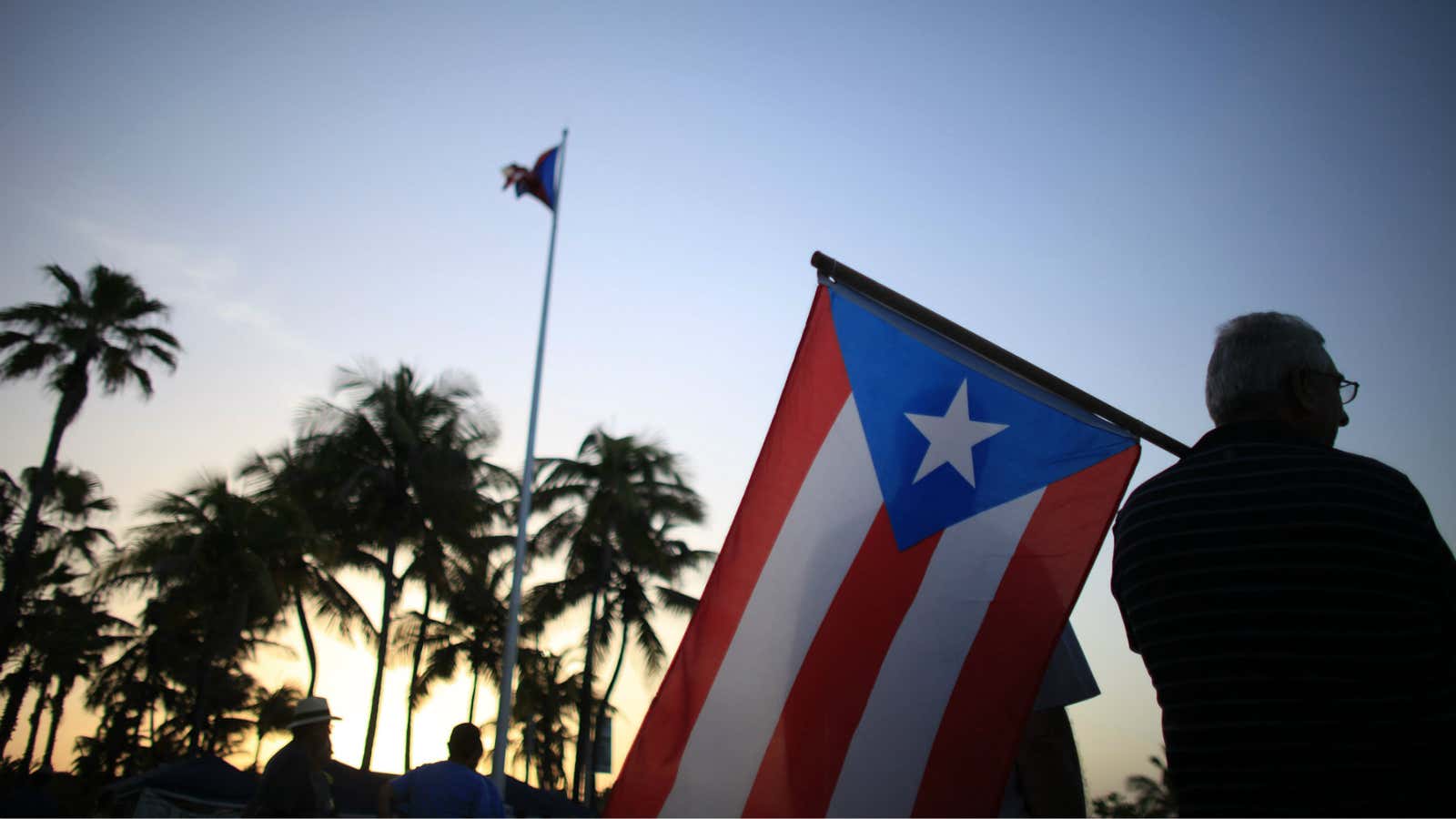A debt-ridden government, with an economy struggling under austerity and years of decline, has revealed that it won’t be able to pay its debt, sending its bonds tumbling along with the shares of its major companies. It’s not Greece—it’s Puerto Rico.
Governor Garcia Padilla, the island’s chief executive, told the New York Times (paywall) in an interview yesterday (June 28) that the US territory’s debts are “not payable” and that it would seek to restructure them.
Yields on Puerto Rico’s general obligation bonds due in 2035, at 10% in early June, have now surged past 12%, an indication that investors see more risk to holding the debt and want to be compensated for it. Shares of Banco Popular, the island’s largest bank, fell more than 6.5% in early trading today.
A restructuring would be more complicated than most; the island lies in a legal grey area because of its status as a territory. It can’t simply handle its debt negotiations in bankruptcy court like the city of Detroit did, though it has sought federal legislation allowing it to do so. (Although incidentally, the Times reports that Puerto Rico has hired Steven Rhodes, the judge who oversaw Detroit’s bankruptcy process, as an adviser.)
“There are way too many creditors and way too many kinds of debt,” Rhodes told the newspaper. “They need Chapter 9 for the whole commonwealth.”
The Puerto Rican government released a report (pdf), created with the help of a panel of current and former International Monetary Fund officials, that lays out the problems facing it, along with proposals for a way out. There are some big fiscal holes to plug, with debt from government and government-backed companies equal to more than 60% of gross domestic product. Though the government passed an austerity budget last year that reduced spending by $200 million, the new plan suggests more than $2 billion in further cuts per year, in addition to raising taxes.
As the report notes, the commonwealth’s economy has been shrinking for most of the last decade, and its population has been leaving in droves. Moody’s, the credit-rating firm, downgraded Puerto Rico’s bonds to junk status last year, suggesting that its response to the crisis wouldn’t be enough to overcome those obstacles. And the authors of the government’s own report agree.
“Even after factoring in a major fiscal effort,” they wrote, “a large residual financing gap persists into the next decade—implying a need for debt relief.”
